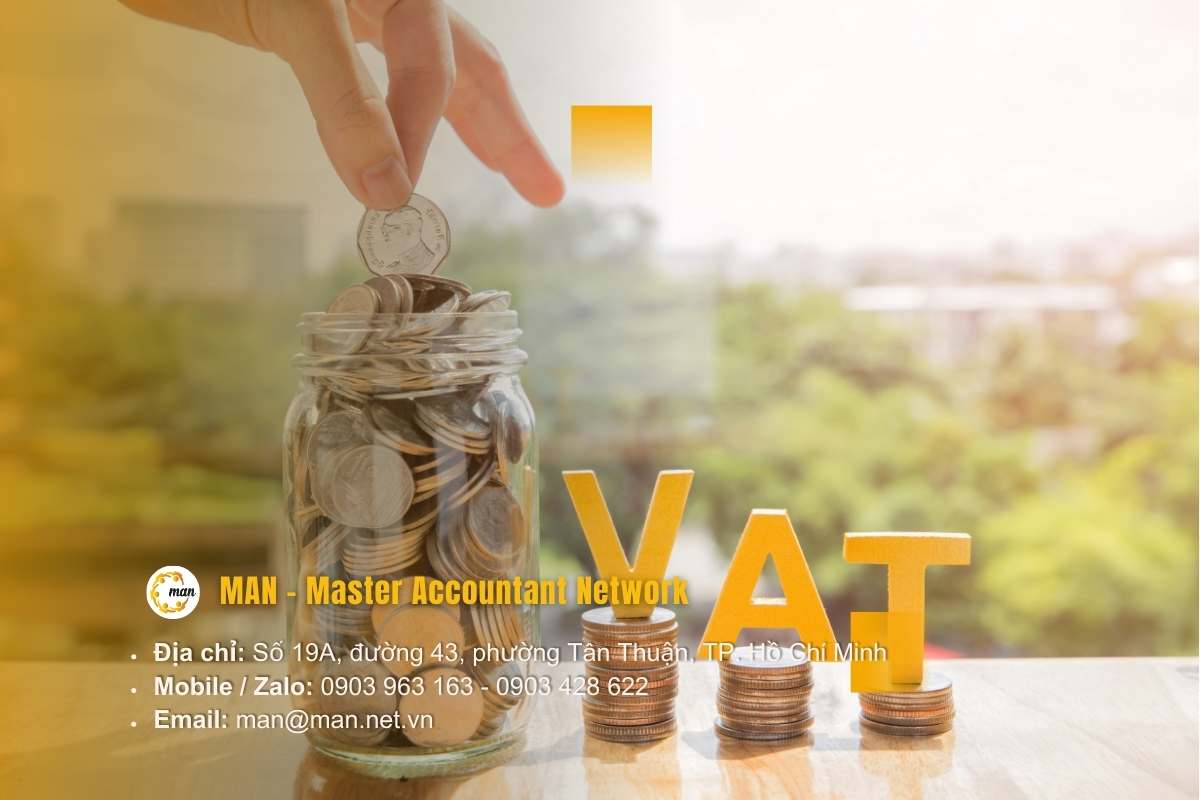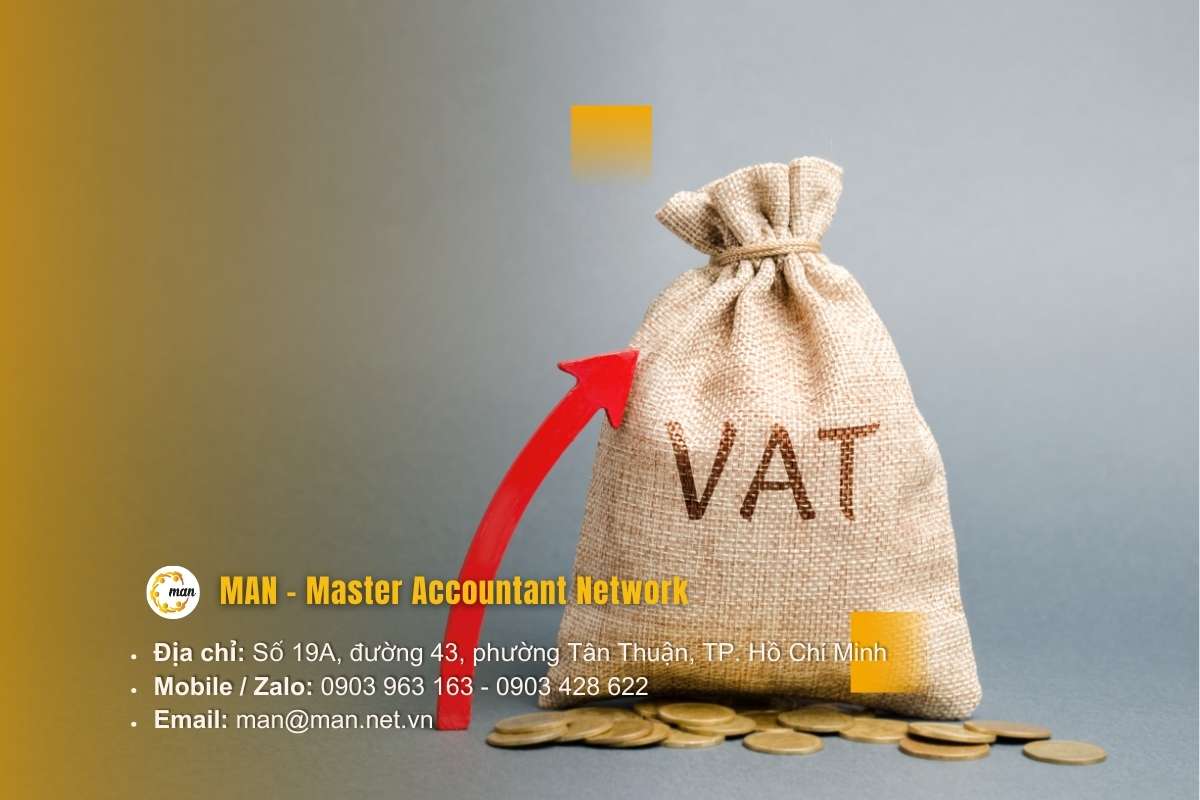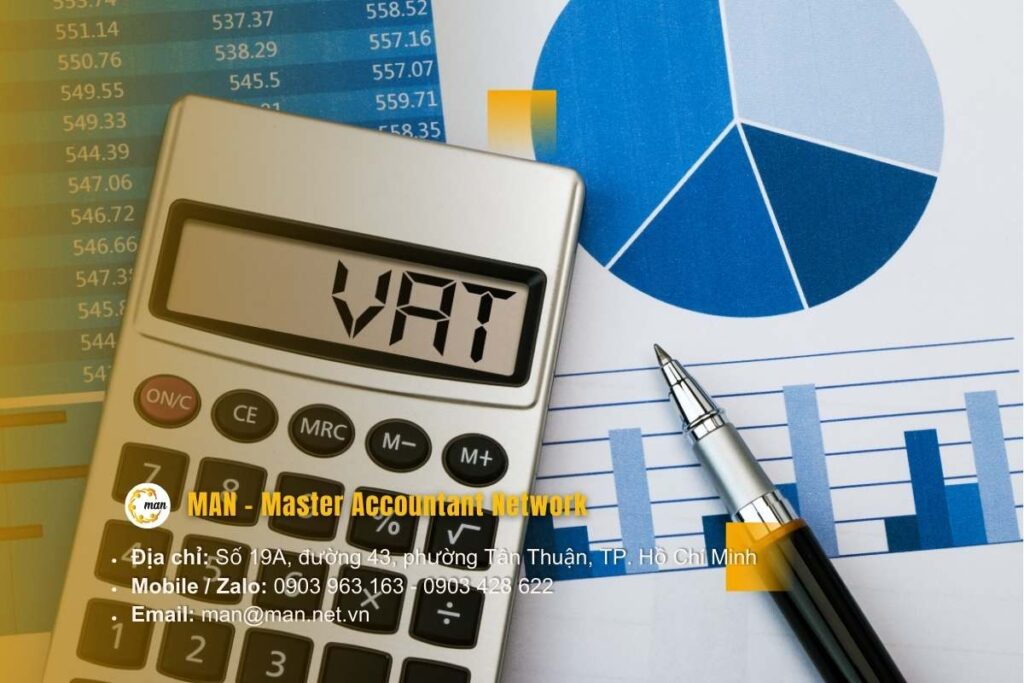Reducing VAT in 2025 according to Decree 174/2025/ND-CP not only helps businesses reduce the burden of production and business costs, but also contributes to stimulating consumption and promoting sustainable economic growth. With an expanded scope of application, clear implementation procedures and an application period lasting until the end of 2026, this policy creates conditions for many industries to take advantage of incentives, optimize selling prices, and improve competitiveness in the market.
Background and legal basis of VAT reduction policy
Background of VAT reduction policy
In 2024, Vietnam's economy recorded a growth rate of 7.091 TP3T, the highest in the past two years; the fourth quarter alone reached 7.551 TP3T thanks to the recovery of exports, FDI investment and industrial production according to data recorded by the Ministry of Planning and Investment. Vneconomy. In addition, inflation was controlled with the CPI for the whole year increasing by 3.63%, lower than the Government's target of 4-4.5% based on the article of Government Electronic Newspaper.
However, forecasts for 2025 show that the rate GDP growth may slow to 5.8% Due to the impact of declining global consumer demand, production cost pressure and increasingly fierce export competition. In addition, domestic purchasing power has not fully recovered, many service, retail and tourism industries are still facing difficulties, and the unemployment rate in some simple labor sectors remains high.
In this context, the Government has chosen the VAT reduction policy as a proactive fiscal measure because it is a solution that has a quick and direct impact on the selling price of goods and services, helping to reduce costs for businesses, stimulate domestic consumption and support production recovery. In addition, this policy inherits experience from the 2023-2024 period, when VAT reduction has proven effective in maintaining GDP growth, controlling inflation and creating room for businesses to increase competitiveness.
Legal basis of VAT reduction policy
VAT reduction policy in 2025 is based on a clear legal foundation:
- Resolution 204/2025/QH15 The National Assembly determined the target of reducing VAT to support the economic and social recovery and development program.
- Decree 174/2025/ND-CP detailed regulations for the implementation of the Resolution.
- VAT Law No. 48/2024/QH15 providing the basic legal framework for determining taxable entities, tax rates and calculation methods – serving as the foundation for applying policies in a lawful and transparent manner.
Time to apply VAT reduction
As prescribed in Article 3 of Decree 174/2025/ND-CP, the value-added tax reduction policy will be implemented from January 1, 2025 and last until December 31, 2026. This is a period of continuous application for two consecutive fiscal years, ensuring stability in tax policy so that businesses and people can proactively plan production - business, consumption and investment.

Choosing the starting point as early 2025 helps to synchronize with the new accounting period, creating conditions for businesses to implement right from the first orders and contracts of the year. In addition, maintaining the policy until the end of 2026 not only supports the recovery process after the pandemic and global economic fluctuations, but also gives the domestic market more time to absorb the positive impact of price reduction thanks to tax incentives.
This period also reflects the Government’s orientation in using tax tools as a medium-term stimulus solution, instead of only applying them in the short term like some previous support packages. Compared to the VAT reductions in 2022 and 2023, which only lasted 6-12 months, extending the validity to 2 consecutive years helps businesses feel more secure in their pricing strategies, raw material import plans, production resource allocation and long-term investment.
VAT reduction level
According to Article 2 of Decree 174/2025/ND-CP, enterprises applying the deduction method will have their VAT rate reduced from 10% to 8% for eligible goods and services. When making an invoice, the tax rate is recorded as 8% and the corresponding tax is calculated, helping buyers save costs and businesses easily adjust selling prices.
For households and individuals doing business that directly calculate tax on revenue, the rate of % for calculating VAT is reduced by 20% compared to the current rate, thereby reducing the tax burden and supporting expansion of operations.
The policy does not apply to groups of goods and services in the exclusion list in Appendix II, such as telecommunications, finance - banking, insurance, real estate, unprocessed mining, metal products and goods subject to special consumption tax, in order to ensure budget balance and focus incentives on industries with strong stimulus effects.
If you want to fully understand the concept, principles and taxable subjects, you can see the details in the article. VAT Overview – Vietnam Tax, to understand the basis of the 2025 tax reduction policy.
Subjects and scope of application of VAT reduction policy
Applicable subjects of VAT reduction policy
As prescribed in Article 1 and Appendix issued with Decree 174/2025/ND-CP, the VAT reduction policy applies to organizations, enterprises, business households, and business individuals who are producing and trading goods and services subject to the tax rate of 10% and reduced to 8%. This includes both domestic enterprises and foreign organizations and individuals doing business in Vietnam according to the law.
The groups of goods and services that enjoy tax reduction incentives are mainly concentrated in the following areas:
| FIELD | DETAIL |
| Production and processing | Including processed and manufactured industrial products, consumer goods, and handicraft products. |
| Transport and logistics | Road, rail, water and air transport services serving production and circulation of goods. |
| Accommodation, food and travel | Hotels, restaurants, full service travel. |
| Some services to support production and life | Repair and maintenance services for machinery, equipment and construction works |
These entities are only entitled to tax reduction if their business activities do not fall into the groups of goods and services included in the List of goods and services not eligible for VAT reduction. (listed in Appendix II of the Decree), such as telecommunications, finance - banking, insurance, real estate business, metals and metal products, unprocessed mining products...
In addition, the Decree also clearly states: enterprises and business households applying the deduction method or the direct method are both entitled to tax reduction, but the reduction level and calculation method will be different.
See more articles at: VAT Subjects – MAN
Scope of application of VAT reduction policy
Compared to previous tax cuts (such as Decree 15/2022/ND-CP), the scope of application of the 2025 policy is expanded in both fields and subjects.
In addition to maintaining incentives for industries that have previously enjoyed tax reductions, Decree 174/2025/ND-CP also added areas with strong spillover effects to the supply chain, such as some specialized logistics services, high-end accommodation, supporting industries and services for the people.

Not only focusing on large-scale enterprises, the policy also targets small and medium-sized enterprises, and individual business households – groups that account for a significant proportion of the economy. This helps ensure that all economic sectors have the opportunity to access incentives, thereby increasing purchasing power, promoting production and improving competitiveness. The application period of two consecutive years also creates stability for business units to proactively make long-term plans, maximizing the positive impact of the policy.
This expansion not only stems from the need to stimulate consumption after a period of economic difficulty, but also aims to promote production, maintain employment stability and ensure budget revenue at a reasonable level through increasing the volume of consumption of goods and services.
New VAT-reduced goods and services list form
According to Decree 174/2025/ND-CP, business establishments eligible for VAT reduction must use Form No. 01 in Appendix III to declare the list of goods and services eligible for tax reduction from 10% to 8%. This form requires clearly stating the taxpayer's information, description of goods and services, tax code, current tax rate, reduced tax rate and basis for application, and must have confirmation from the legal representative.
Enterprises can download the form from the Electronic Information Portal of the Ministry of Finance or the General Department of Taxation and submit it online to save time. Applying a unified form helps tax authorities easily control, ensure the right subjects, limit errors and facilitate enterprises in the process of enjoying tax incentives.
Download the declaration form here: Form No. 01 – Decree 174/2025/ND-CP
See more articles: VAT reduction declaration form 2025 according to Decree 180/2024/ND-CP?
Benefits and practical impacts of VAT reduction
Benefits of VAT reduction
VAT reduction policy according to Decree 174/2025/ND-CP bring positive impacts simultaneously to the business community, consumers and the entire economy.

For business
Lowering the tax rate from 10% to 8% directly reduces the selling price of products and services, thereby improving competitiveness compared to imported goods or domestic competitors. The lower tax rate also allows businesses to retain more profits for reinvestment, expansion, technology improvement and product quality improvement. In particular, applying the policy throughout the 2025-2026 period creates the necessary stability, helping businesses proactively build long-term strategies instead of having to deal with short-term incentives.
For consumers
Consumers also benefited significantly from the reduction in prices of goods and services, helping to reduce spending pressure in the context of rising prices for many items. Essential products and services such as food, transportation or tourism became more accessible, even opening up opportunities to experience services previously considered high-end or beyond the affordability of many people.
For the economy
At the macro level, lower tax rates help stimulate domestic consumption, create a faster turnover of goods and services, thereby boosting production. Service and manufacturing industries that have been negatively affected by economic fluctuations, especially tourism, accommodation, restaurants and transportation, will have conditions for a quick recovery. This impact also spreads to the entire supply chain, including supporting industries, logistics and distribution, thereby supporting GDP growth and strengthening a sustainable economic foundation.
Practical impact of VAT reduction
Experience from previous tax reduction periods (2022–2024) shows that the positive impact can be measured on many aspects:
Economic growth and retail sales
According to the Ministry of Finance, the VAT reduction in 2023 has helped retail sales of consumer goods and services increase by about 9.51% compared to the previous year, contributing an additional 0.3–0.4 percentage points to GDP growth. With a longer implementation period and wider scope in 2025–2026, the expected contribution is even higher.
Improve business health
Many small and medium-sized enterprises said that the VAT reduction helped them maintain operations during the period of declining purchasing power, avoiding downsizing or laying off workers. This contributed to stabilizing the labor market and limiting the negative impacts from spreading to other industries.
Stabilize inflation
Although tax cuts may increase consumption, experience shows that this effect does not put much pressure on inflation. In 2024, when tax cuts are applied to some groups of goods, the CPI will still remain at 3.63%, lower than the Government's target of 4–4.5%. This shows that the policy can be implemented in parallel with the price stability target.
Impact on budget revenue
In the short term, the State budget may see a reduction in VAT revenue. However, thanks to increased demand, expanded production and greater consumption of goods and services, total revenue from other sources (corporate income tax, personal income tax, import and export tax) will make up for the shortfall.
Conclude
VAT reduction policy in 2025 according to Decree 174/2025/ND-CP This is not only a short-term fiscal measure to reduce cost pressure on businesses and people, but also a strategic step to stimulate consumption, promote production and create a foundation for sustainable growth.
With the global economic context fraught with risks, applying policies over a sufficiently long period (2025–2026) and on a broad scale will help the Vietnamese economy have more room for recovery, while creating a stable and transparent business environment.
Experience from previous years shows that VAT reduction is an effective tool to balance between supporting growth and maintaining fiscal discipline. If implemented synchronously with measures to reform administrative procedures, support credit and improve labor productivity, this policy will maximize its effectiveness, contributing positively to the socio-economic development goals for the 2025-2026 period and beyond.
For businesses to fully comply with VAT regulations, it is very important to correctly identify taxable entities, apply the correct tax rates and properly deduct taxes. MAN – Master Accountant Network Proud to be a trusted partner, with a team of experienced experts in the field of tax and accounting. MAN is committed to supporting businesses in optimizing tax costs, ensuring legal compliance and effectively applying tax reduction policies. Please contact MAN for expert advice and support..
Contact information:
- Company: MAN – Master Accountant Network
- Address: No. 19A, Street 43, Tan Thuan Ward, Ho Chi Minh City
- Hotline: 0903 963 163 – 0903 428 622
- E-mail: man@man.net.vn




